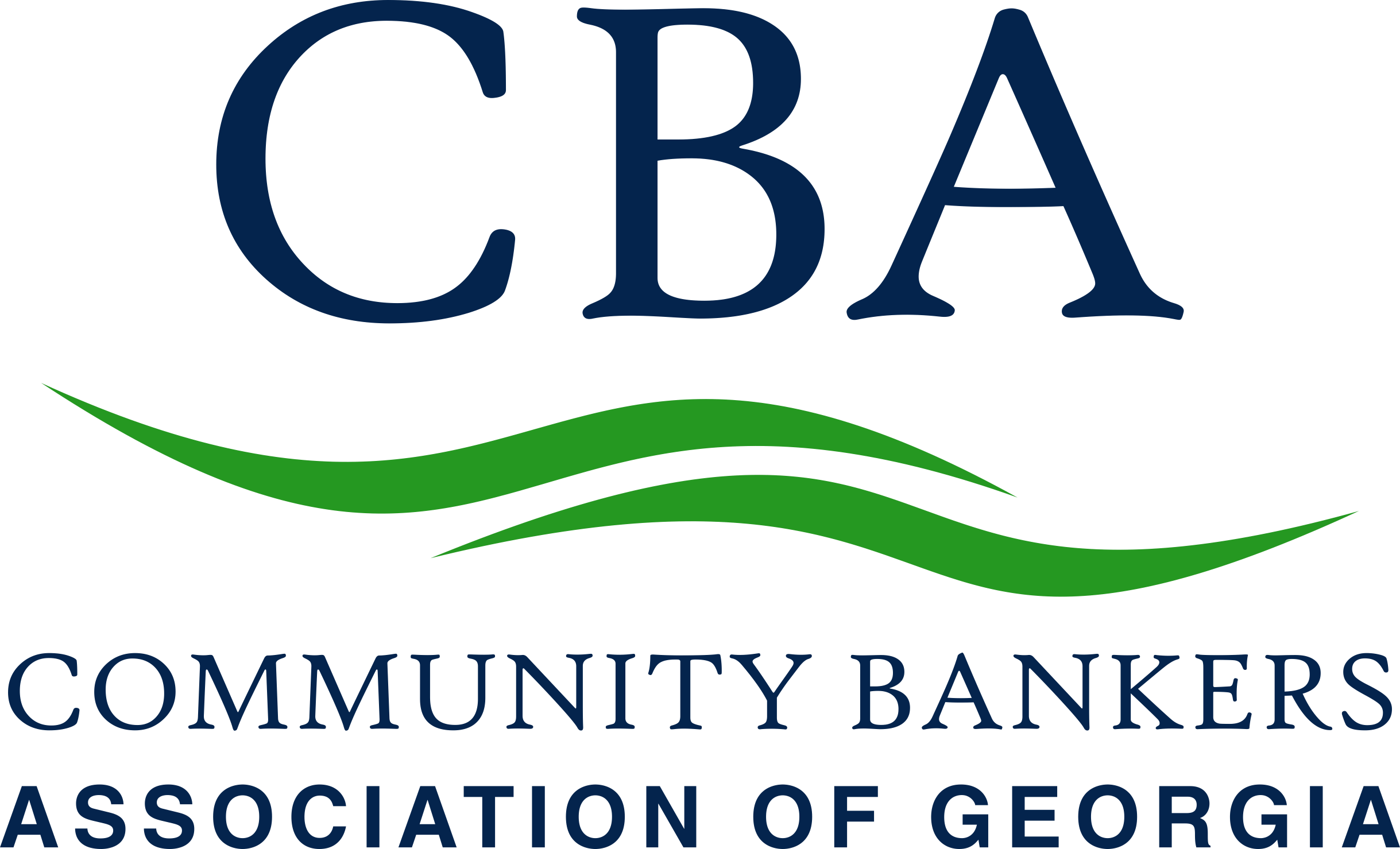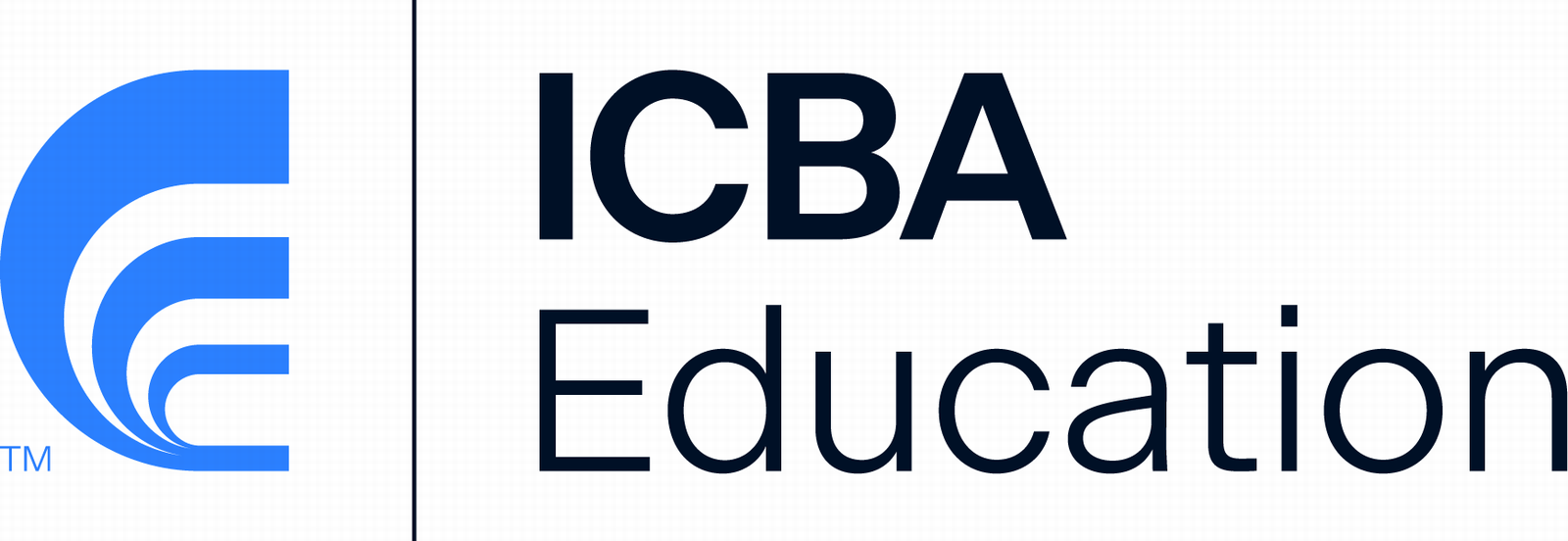Advocacy Update 2025 - Legislative Days 22-25
Countdown to Crossover

The House and Senate were active each day this week with committee meetings stretching from 7am to 7pm. The frenzied pace is attributed to Crossover Day, slated for March 6.
Crossover Day is just like it sounds – it’s the deadline for bills to “cross” to the other chamber. In other words, House bills must be approved by the House and Senate bills must be approved by the Senate by the end of Crossover Day to remain viable for the balance of the session. This ensures lawmakers have at least twelve legislative days in which to review, amend, and vote on measures from their colleagues across the hall.
Active Measures: Banking

Vendor Compensation (HB 439)
Rep. Bill Yearta, R—Sylvester
Heard by the House Banks & Banking Cmte on Feb-26. Placed on House Banks & Banking Cmte calendar for Mar-3.
HB 439 revises vendor compensation rates to offset the administrative costs of collecting and reporting sales tax.
Putting Georgia’s Patients First Act (HB 227)
Rep. Robert Dickey, R—Musella
Bill passed by the House Health Cmte on Feb-19. House passed the bill with a vote of 164-1 on Feb-27.
HB 227 renames low THC oil as medical cannabis and revises the existing diagnosed conditions for which a medical cannabis registration card can be issued. Despite state-level legalization for medical purposes, cannabis remains classified as a Schedule I substance under federal law, creating significant hurdles for cannabis-related businesses especially concerning financials services. HB 342 is also active on this issue.
Boat Titling (HB 115)
Rep. Jesse Petrea, R—Savannah
House passed the bill with a vote of 164-0 on Feb-26. Assigned to the Senate Natural Resources and the Environment Cmte on Feb-27.
HB 115 pertains to the registration, operation, and sale of watercraft. It allows the Department of Natural Resources to remove, store, and dispose of abandoned vessels but does not denote how a lienholder is notified when a boat is removed. CBA is working with the author and the Department to address this.
Manufactured Homes (HB 377)
Rep. Rob Leverett, R—Elberton
House passed the bill with a vote of 166-0 on Feb-28.
HB 377 relates to manufactured or mobile homes and provides limited exceptions to circumstances under which a manufactured home shall become real property.
Mortgage Trigger Leads (HB 240)
Rep. Noel Williams, R—Cordele
House passed the bill with a vote of 165-0 on Feb-28.
HB 240 bars credit reporting agencies from selling consumers’ contact information when they apply for a residential mortgage. A similar bill (HB 1040) was introduced last session by Rep. Scott Hilton.
Convenience Fees for Payment by Electronic Means (HB 241)
Rep. Trey Rhodes, R—Greensboro
House passed the bill with a vote of 160-3 on Feb-27.
HB 241 comes at the request of Chime, a financial technology company that offers an earned wage access service called MyPay, which provides advances without interest charges. Under this proposal, Chime will submit to licensure under the Georgia Installment Loan Act and offer its MyPay product as a loan. While Chime offers a no-fee “standard access” payout, it also offers an “instant access” option with a $2 fee. To accommodate this fee structure, HB 241 increases the convenience fee allowed under the installment lender statute to the average actual cost incurred by the lender or $5, whichever is great.
Georgia Housing and Finance Authority (HB 159)
Rep. Clint Crowe, R—Jackson
Bill reassigned from House Budget and Fiscal Affairs Oversight Cmte to the House Banks & Banking Cmte on Feb-18. Heard by the House Banks & Banking Cmte on Feb-26.
HB 159 increases the outstanding bond limit from $3 billion to $12 billion for the Georgie Housing and Finance Authority.
Active Measures: General Business

Judicial
Civil Practice Reform (SB 68)
Sen. John Kennedy, R-Macon
Bill passed by the Senate with a vote of 33-21 on Feb-21. Assigned to the House Rules Cmte on Feb-24.
Part of Governor Brian Kemp’s legal reform package, SB 68 contains several critical civil practice reforms. In an unusual move, Speaker Jon Burns assigned SB 68 to the House Rules Committee. On Feb-26, Rules Chairman Butch Parrish appointed a special subcommittee to consider the legislation. The subcommittee, chaired by Rep. Rob Leverett (R-Elbertson) convened for its first meeting on Feb-27. Sen. Kennedy spent more than two hours presenting the bill and fielding an initial round of questions from subcommittee members. Chairman Leverett intends to schedule additional topic-specific hearings in the coming weeks to include public comment.
Regulate Third-Party Litigation Funding (SB 69)
Sen. John Kennedy, R-Macon
Senate passed the bill with a vote of 52-0 on Feb-27. Assigned to the House Rules Cmte on Feb-28.
The Georgia Courts Access and Consumer Protection Act is the second piece of the Governor’s legal reform package. SB 69 acknowledges third party litigation financiers (TPLF) and requires property registration and oversight of the industry by the Georgia Department of Banking and Finance. It provides consumer protection in TPLF engagements and disclosure in litigation. The bill prohibits foreign influence in TPLF and protects Georgia’s state courts system from entities adversarial to state and national interests.
Forum Shopping (SB 292)
Sen. Emanuel Jones, D-Decatur
Assigned to the Senate Judiciary Cmte on Feb-27
SB 292 establishes that domestic corporations with a principal place of business in Georgia are deemed to reside in and be subject to venue in the county where their principal place of business is located. The bill seeks to reduce forum shopping.
First Offender Act Sentences (HB 162)
Rep. Leesa Hagan, R—Vidalia
House passed the bill with a vote of 172-0 on Feb-19. Assigned to the Senate Judiciary Cmte on Feb-20.
HB 162 provides for the restriction and seal of First Offender Act sentences until such status is revoked.
Sen. Frank Ginn, R—Danielsville
Senate passed the bill with a vote of 49-0 on Feb-21. Assigned to the House Governmental Affairs Cmte on Feb-24.
SB 12 revises the state’s Open Records Request statutes relating to documents and records in the possession of private persons or entities and the judicial enforcement of such requests. The Senate Judiciary Committee clarified who receives the open records request.
Property
Notice to Property Owner When Deed is Filed (HB 427)
Rep. Teddy Reese, D-Columbus
Passed by the House Judiciary Cmte on Feb-25.
As introduced, HB 427 creates a 45-day waiting period when a deed is filed by someone other than the owner. As amended by the House Judiciary Committee on Feb-25, the bill maintains the 45-day waiting period for deeds, mortgages, and liens. During this period, the clerk of the superior court must notify the property owner. The notice and waiting period can be waived for certain entities including attorneys, insurance agents, banks, and others who meet specific criteria. The bill also requires the clerk of the superior court to offer electronic filing for recording of instruments related to property starting January 1, 2026.
Community Development Districts (HR 192)
Rep. Ron Stephens, R—Savannah
Resolution withdrawn from the House Governmental Affairs Cmte and assigned to the House Ways & Means Cmte on Feb-18.
HR 192 proposes an amendment to the Georgia Constitution to authorized the General Assembly to create and regulate community development districts, subject to local governmental approval. The enabling legislation is HB 317.
Tenant Communications (HB 399)
Rep. Mary Margaret Oliver, D—Decatur
Bill withdrawn from the House Judiciary Cmte and assigned to the House Governmental Affairs Cmte on Feb-19. Bill passed by the House Governmental Affairs Cmte on Feb-26.
HB 399 requires certain residential landlords to have in-state staff to manage tenant communications related to such properties.
Possessory Interest in Certain Land by Foreign Persons (HB 358)
Rep. Vance Smith, R—Pine Mountain
Bill passed by the House Judiciary Cmte on Feb-24.
HB 358 prohibits certain foreign persons and entities from the acquisition of possessory interest in certain land defined as a military installation.
Taxation
Sales Tax Exemption for Manufactured Homes (HB 134)
Rep. Beth Camp, R—Concord
House passed the bill with a vote of 160-0 on Feb-26. Assigned to the Senate Finance Cmte on Feb-27.
HB 134 revises and expands a sales tax exemption for manufactured homes. The first retail sale or retail purchase in this state of a new manufactured single-family structure shall be subject to the sales and use taxes which would otherwise be levied on such retail purchase or retail sale, but only upon 60 percent of the manufacturer’s invoice amount.
General Business
Red Tape Roll Back Act (SB 28)
Sen. Greg Dolezal, R-Alpharetta
Bill passed by the Senate with a vote of 33-21 on Feb-24. Assigned to the House Budget and Fiscal Affairs Oversight Cmte on Feb-26.
A priority of Lt. Governor Burt Jones, SB 28 provides for the preparation and submission of small business impact analyses for proposed legislation, rules, and regulations. It requires state agencies to complete a top-to-bottom review of their rules and regulations every four years. A similar measure (SB 429) fell just short of the finish line last year. For more information, click here.
Technology
Sen. John Albers, R—Roswell
Heard by the Senate Economic Development and Tourism Cmte on Feb-26.
SB 37 requires all governmental entities to develop and maintain artificial intelligence system usage plans. It creates the Georgia Board for Artificial Intelligence to provide for guidance to governmental entities.
Sen. Nikki Merritt, D-Grayson
Heard by the Senate Economic Development and Tourism Cmte on Feb-26.
SB 167 requires private entities that employ certain AI systems to guard against discrimination caused by those systems in opportunities related to education, employment, essential government services, financial or lending services, healthcare, housing, insurance, or legal services.
New Legislation of Interest

Banking Related
Intangible Recording Tax (HB 586)
Rep. Bruce Williamson, R—Monroe
Assigned to the House Ways & Means Cmte on Feb-24.
HB 586 revises the notes for which such tax is imposed. It changes the term of a long-term note secured by real estate from three to seven years from the date of the note.
State Depositories (SB 228)
Sen. Jason Esteves, D—Atlanta
Assigned to the Senate Banking & Financial Institutions Cmte on Feb-21. Heard by the Senate Banking & Financial Institutions Cmte on Feb-27.
SB 228 provides for the State Depository Board to allow the state treasurer to invest in Bitcoin. See also SB 178.
Peer to Peer Payment Platforms (HB 576)
Rep. Al Williams, D—Midway
Bill passed by the House Agriculture and Consumer Affairs Cmte on Feb-27.
HB 576 requires that the processing of transactions initiated by users of peer-to-peer payment platforms be delayed for 15 minutes, during which time the user shall be able to cancel the transaction.
Financial Literacy (HB 674)
Rep. Miriam Paris, D—Macon
Assigned to the House Education Cmte on Feb-27.
HB 674 requires the State Board of Education and local boards of education to adopt content standards for instruction in financial literacy and money management for grades four and five.
Earned Wage Access (SB 282)
Sen. Russ Goodman, R—Cogdell
Assigned to the Senate Industry & Labor Cmte on Feb-27.
SB 282 sets rules for earned wage access providers. The bill declares that earned wage access payments are nonrecourse and are not considered loans or money transmission.
Consumable Hemp Products (SB 229)
Sen. Jason Anavitarte, R—Dallas
Assigned to the Senate Regulated Industries and Utilities Cmte on Feb-21.
SB 229 prohibits the issuance of wholesale consumable hemp licenses to wholesale dealers of alcoholic beverages. It prohibits wholesale dealers of alcoholic beverages from selling or otherwise distributing consumable hemp products.
Delta-9-THC Consumable Hemp Products (SB 254)
Sen. Bill Cowsert, R—Athens
Assigned to the Senate Regulated Industries and Utilities Cmte on Feb-26. Bill passed by the Senate Regulated Industries and Utilities Cmte on Feb-27.
SB 254 provides milligram limits on delta-9-THC hemp products.
Judicial
Premises Liability (SB 223)
Sen. Harold Jones, D—Augusta
Assigned to the Senate Judiciary Cmte on Feb-21.
SB 223 limits premises liability unless a claimant proves a crime was foreseeable and the owner failed to take precautions. It defines key terms and provides legal defenses for property owners who implement security measures like cameras, lighting, and security personnel. Residential buildings with five or more units must meet additional safety requirements.
Electronic Filing of Pleadings in Probate Court (HB 530)
Rep. Rob Leverett, R—Elberton
Assigned to the House Judiciary Cmte on Feb-20. Bill passed by the House Judiciary Cmte on Feb-25.
HB 530 provides for authorization for the electronic filing of pleadings in probate court.
Remote Online Notary (SB 299)
Sen. Larry Walker, R—Perry
Assigned to the Senate Veterans, Military, and Homeland Security Cmte on Feb-28.
SB 299 provides for members of the armed forces on active duty to use online notaries public licenses in any state to notarize any forms or documents required by state or local agencies for matters involving taxation, titling, and licensing of a motor vehicle. This provision does not apply to any documents involving conveyance of real estate, wills, or trust, or to motor vehicles not intended for personal use by the service member or his or her family.
Property
Georgians First Residential Property Protection Act (HB 555)
Rep. Derrick McCollum, R—Chestnut Mountain
Assigned to the House Judiciary Cmte on Feb-21. Bill heard in the House Judiciary Cmte on Feb-25.
HB 555 prohibits business enterprises from owning an interest in more than 2,000 single-family residential properties or ten multifamily residential properties.
Mechanics and Materialmen Liens (HB 676)
Rep. Rob Clifton, R—Evans
Assigned to the House Judiciary Cmte on Feb-27.
HB 676 provides for a fine for any frivolous mechanic lien filed.
General Business
Automatic Service Renewals (HB 529)
Rep. Carter Barrett, R—Cumming
Assigned to the House Agriculture & Consumer Affairs Cmte on Feb-20. Bill passed by the House Agriculture & Consumer Affairs Cmte on Feb-27.
HB 529 requires businesses to give consumers the option to cancel after their contract period and clearly disclose renewal terms. See also SB 127.
Issuance of Temporary Operating Permits (HB 551)
Rep. Jason Ridley, R—Chatsworth
Assigned to the House Motor Vehicles Cmte on Feb-21. Bill passed as a substitute by the House Motor Vehicles Cmte on Feb-25.
HB 551 establishes conditions for issuing temporary operating permits. It modifies licensing requirements for used motor vehicle dealers and used motor vehicle parts dealers.
Peach State Saves Program (SB 226)
Sen. Chuck Hufstetler, R—Rome
Voted down by the Senate Retirement Cmte on Feb-27.
SB 226 creates the Peach State Saves program, a voluntary retirement savings program for employees without employer-sponsored retirement plans. The Senate Retirement Committee voted against the measure after learning that employers with more than five employees could be penalized for failing to offer the program to eligible employees.


